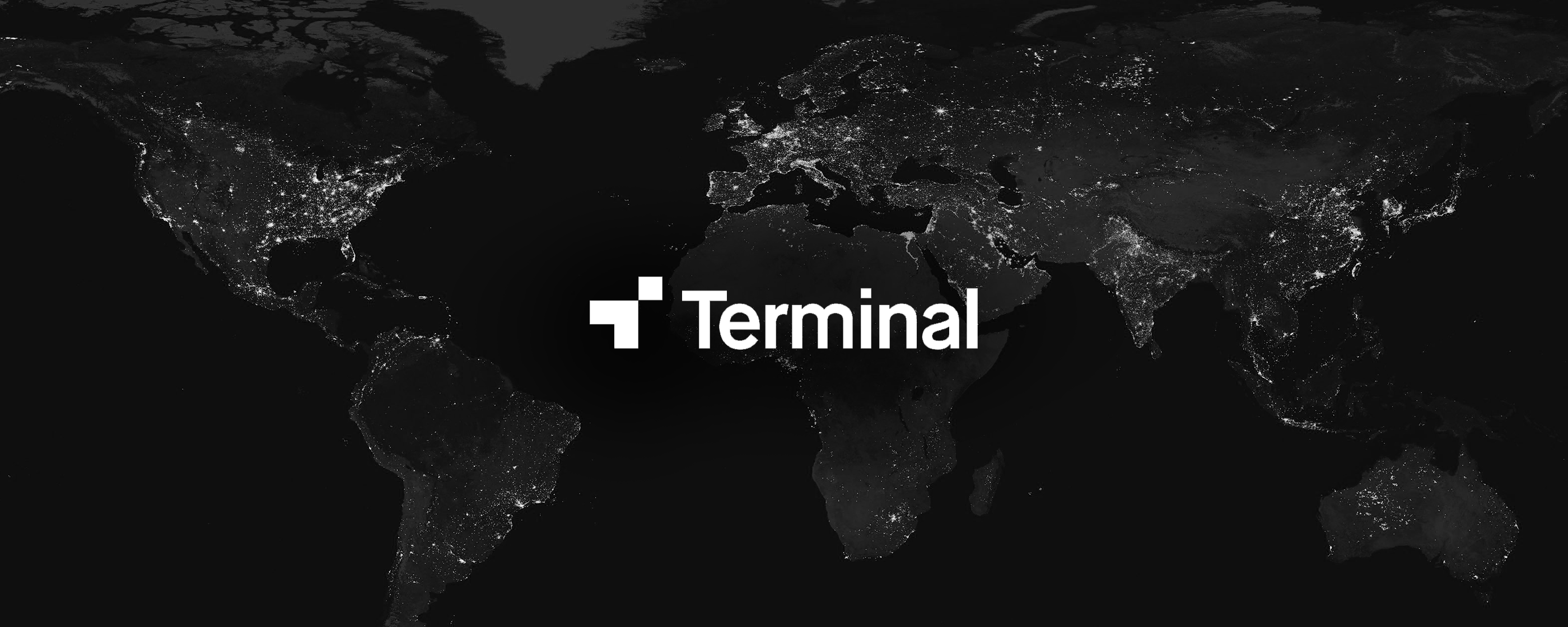
Hello, World!
Announcing Terminal, by Joe Lonsdale and Jack Abraham
Talent is the technology ecosystem’s most precious resource. Innovation occurs when gifted and hard-working entrepreneurs bend their wills to solve the world’s most challenging problems. A primary indicium of a healthy startup is the talent of the engineers involved. At Palantir, Addepar, Zenreach, Milo and the other companies we have started, we focused on building the kinds of organizations that attract the best minds. There is no formula for innovation, but the best proxy is a group of brilliant, highly motivated people clustered together, working towards a shared goal.
A decade ago, popular opinion suggested that this talent had to physically cluster together — in Silicon Valley. That’s no longer true. First, attracting and retaining talent in Silicon Valley is more difficult than ever; startup founders are spending most of their time and money chasing around engineers to join (or stay with) their companies. Second, proximity is now as much virtual as physical; today everything is in the cloud and deskmates often chat first via tools like Slack before talking across the table. Empirically, the majority of entrepreneurial engineering talent is no longer concentrated in a 15 mile radius but rather all across the globe, in localized emerging talent hubs.
Until recently, mathematical and systems thinking talent remained an untapped resource in many parts of the world. The spread of the Internet and everyday visibility of major technology companies such as Apple and Google has drawn attention to the importance of these talents. Technological literacy rates are rising, and increasing numbers of universities are adapting their curricula to emphasize STEM skills. In fact, the 10 best countries for computer programming do not include the US.
Young people thousands of miles away from Silicon Valley increasingly have the chance to become engineers, scientists, and programmers in top technology companies without immigrating to the US. China is already home to a huge amount of top talent, and is even eclipsing the West in certain specializations. Leading talent from India has thrived in Silicon Valley for decades, and is now building an impressive technological ecosystem on the subcontinent. Despite restrictive government regulation, Western Europe has been unable to suppress the entrepreneurial tech talent emerging in London, Paris, and Berlin. Talent from South America, Australia, and Africa has become part of the global technology community in the last decade.
World-class tech hubs are emerging in distant, sometimes unexpected locations. Ho Chi Minh City, Vietnam is now a major technology hub in Southeast Asia. Business and engineering are the most popular majors for Vietnamese studying abroad, and LG, Panasonic, and Toshiba are establishing R&D operations in Vietnam. Eastern Europe, with its strong tradition of mathematics and computer science, is also emerging as a powerhouse. Eastern European programmers consistently take first place in international competitions, and AVG Technologies, Codewise, and Prezi are all exports from Eastern Europe’s capital cities. Israel remains a technological powerhouse, punching far above its weight in fintech and cybersecurity. “Start-up Nation” features the most SMEs per capita in the world, and Israeli startups raised a record $4.8 billion in 2016.
Some forward-thinking governments have helped shepherd this surge of talent by creating R&D programs and other initiatives. One great example is Canada. The late Finance Minister Jim Flaherty was not only one of the most respected G8 finance ministers, but a visionary with respect to technological progress. Canada’s 2012 budget pledged CAD $1.6b to support R&D and innovation through grants and credit programs, and this number has grown substantially in the past 5 years. Canada also pioneered a startup visa geared specifically towards technologists.
Canada’s efforts have helped bridge its strengths in scientific research, applied science, and experimental development to the business world, particularly technology markets. The public/private MaRS Discovery District in Toronto and the Montreal Institute for Learning Algorithms (MILA) are at the forefront of AI and machine learning research, and the latter has attracted partnerships with Google and IBM. Many of Canada’s top universities — Waterloo, Toronto, Montreal, and McGill — are producing highly talented computer science graduates. Canada is a desirable place of residence for engineers (as well as professionals in other industries) and recently, Toronto startups have experienced a reverse brain drain with double-digit increases in job applications from the US. These political and cultural developments have made it possible for a group of Silicon Valley veterans to create a talent program aimed at nurturing the Canadian tech industry to maturity.
For that reason, we are pleased to announce the launch of Terminal — a company which builds and scales elite engineering teams for the very best technology firms. We funnel talent to top technology firms that maintain the highest standard of conduct and consistently pursue impressive missions. Terminal provides full stack recruiting, comprehensive infrastructure and back-office support for talent. Members of our organization cluster and develop their skills in supportive, stimulating environments, which simplifies the hiring and employment process for potential employers. We already have “terminals” in Kitchener-Waterloo, Montreal, Vancouver and plan to open more soon.
Terminal helps talented individuals across the country find berths in the best technology companies, and helps technology companies locate the employees they need to thrive and grow. One of our central pillars is to ensure that our partner companies will commit to treating their new employees as a first-class citizens rather than replaceable parts. By cultivating mutually respectful relationships between tech companies and prospective employees we are strengthening tech cultures in productive, valuable ways. Our co-founders are Dylan Serota, who built and scaled the successful Eventbrite platform team largely in Mendoza, Argentina, and Luke Finney, who has led teams of Navy SEALs around the world. Together we will expand Terminal to the global scale, and ultimately plan to open “terminals” in all emerging tech hubs.
We strongly believe that the hardest problems in the world will be solved by technology companies. Talented technologists are tackling some of the most difficult problems in healthcare, government, financial systems, and other broken industries. Concentrating and structuring teams of great minds to work on these problems is what the startup ecosystem is all about. We hope our efforts at Terminal will enable great companies to partner with tens of thousands of leading technologists in the coming years.

